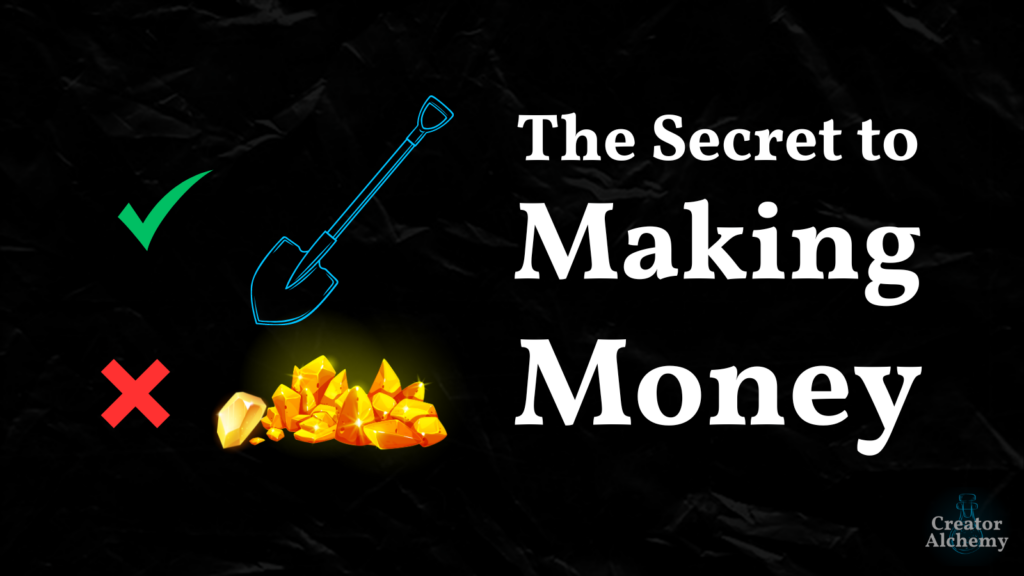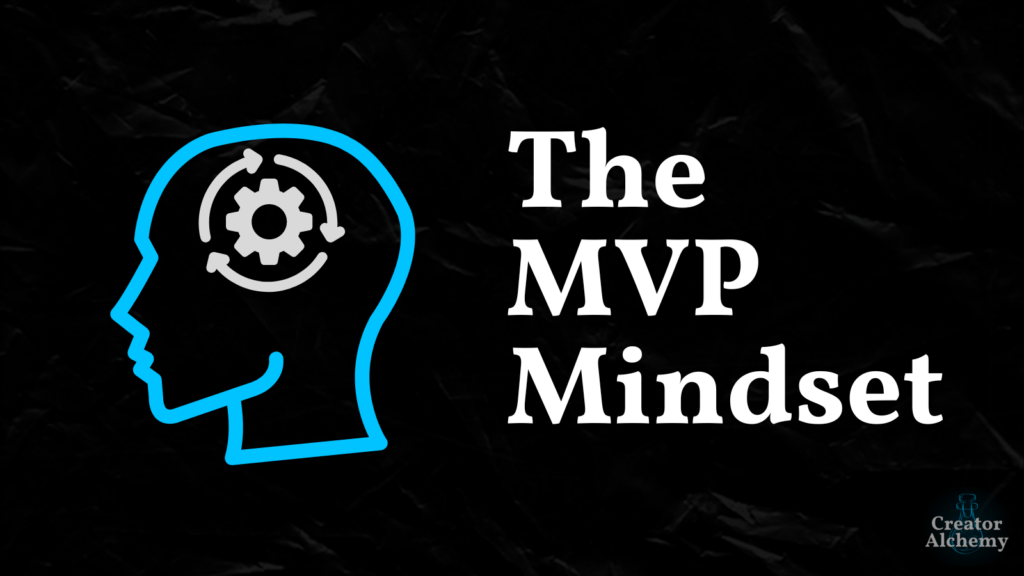You can make excuses, or you can make changes—but you can’t do both.
Most of us claim we want something, but all we do is make excuses about all the reasons we haven’t gotten it yet.
But it’s not our fault.
See, humans have 3 psychological traits that create this issue:
- We’re designed to find problems (and if we can’t find any, we create them).
- We’re what psychologists call cognitive misers—meaning we’re mentally lazy and don’t want to put in much effort.
- We’re naturally fearful and avoidant of unfamiliar things.
These traits have helped us survive as a species in the past, but are the root of many of our problems today…
Combined, these traits mean we’re great at finding and avoiding problems—not solving them.
Yes, we’re decent at problem-solving, but finding solutions takes dedicated effort. Finding problems comes naturally.
Which is why it’s so easy for us to fall into the trap of becoming great at finding every single problem (aka, excuse) keeping us from achieving the thing we claim to want.
If you’re ready to stop making excuses and start making changes, here’s a cognitive restructuring technique to help you switch from being problem-focused to solution-focused…
Turn “but” into “so.”
Here’s what I mean…
•••
But is a Problem
Most people follow this formula:
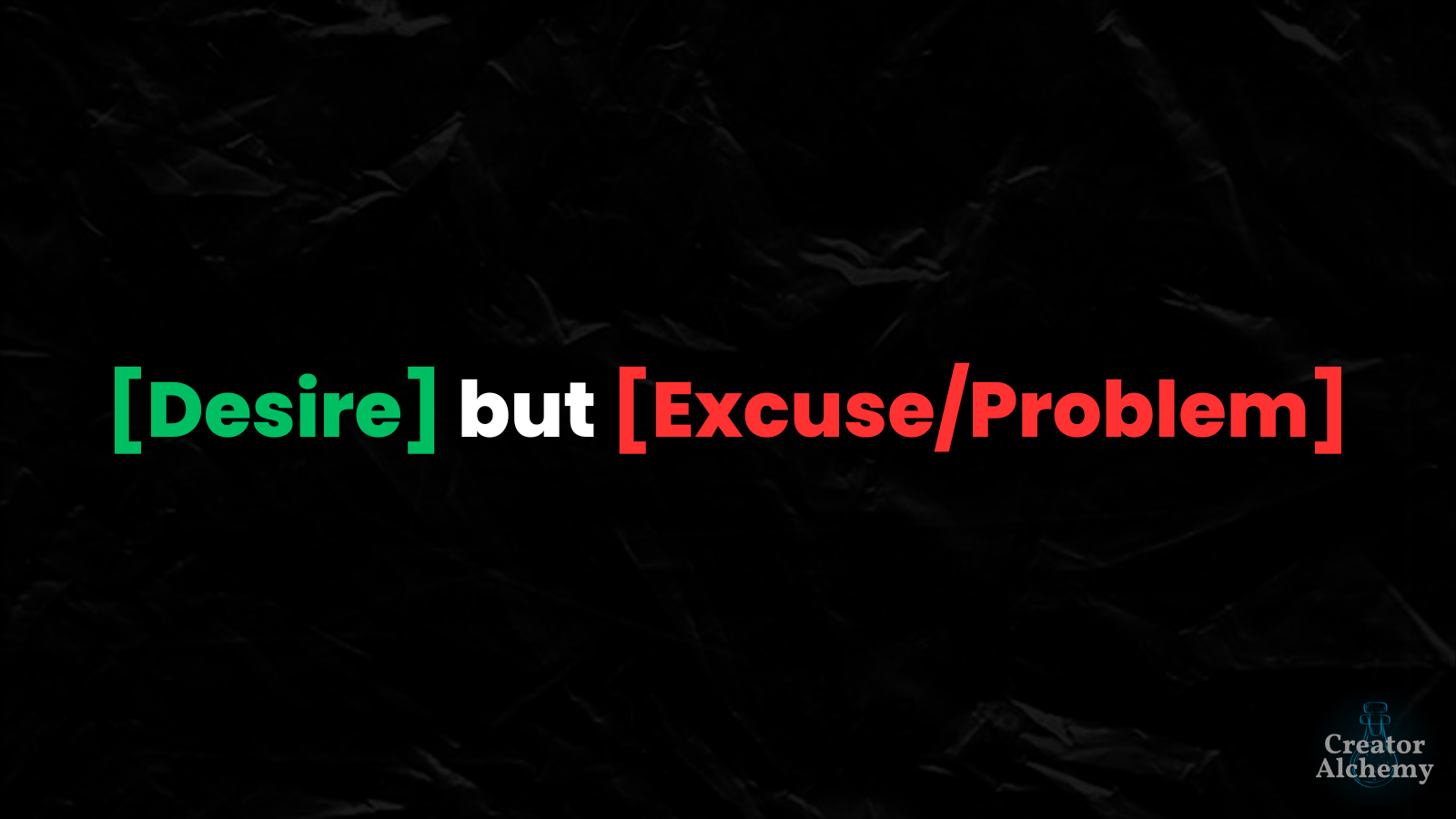
For example:
“I want to start a newsletter, but I don’t know what to write about.”
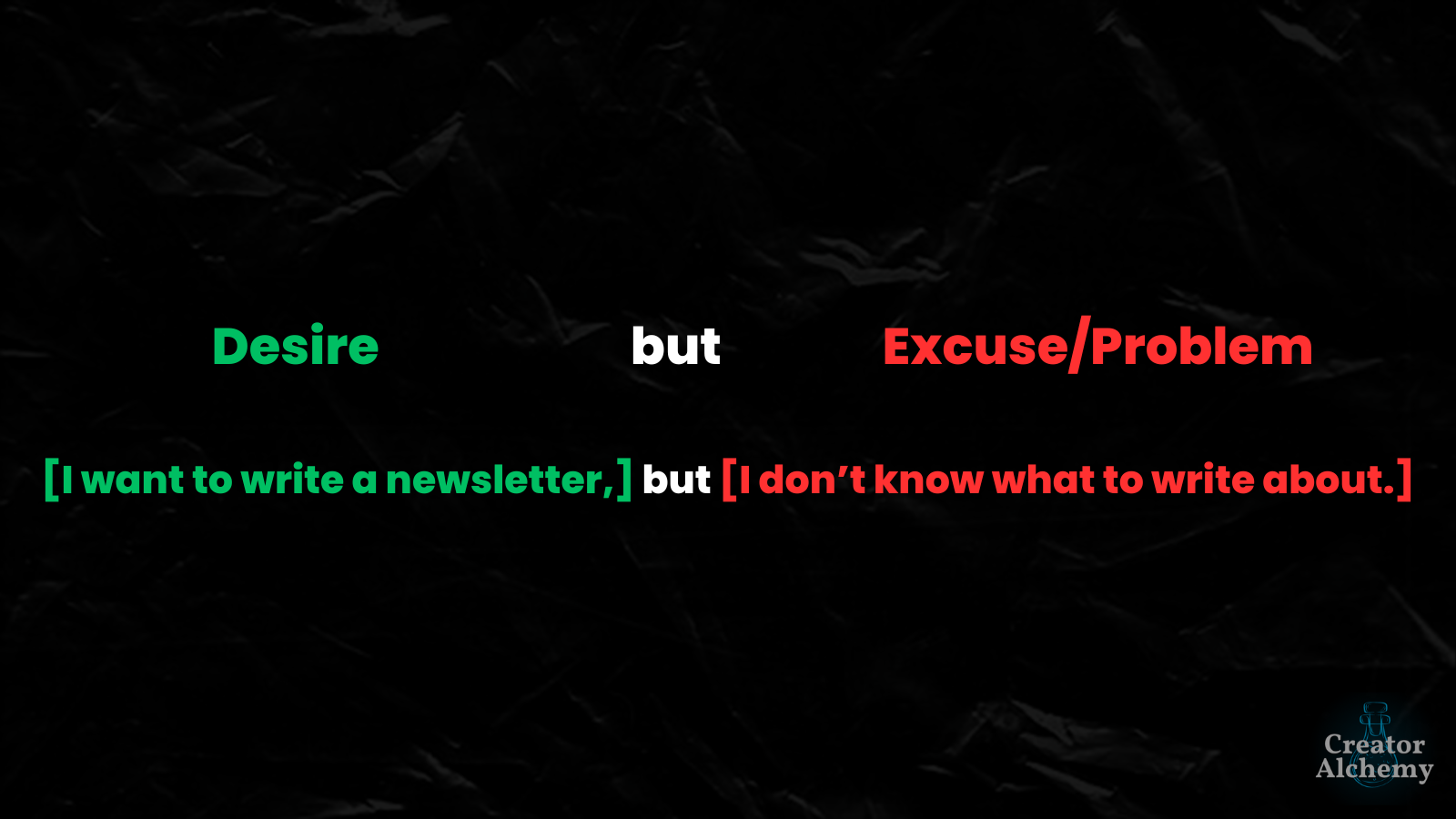
When you focus on the problem, all you can see is the problem. And the more you practice finding problems, the better you get at finding problems, and the more problems you find.
Before you know it, you’re overwhelmed with how many problems there are keeping you from your desired goal.
You feel like you’re drowning.
So what do you do?
You cry for help, desperately hoping someone can throw a life preserver your way.
But what happens?
Even when someone does try to help you by offering solutions—you’re so focused on finding problems, that all you can see are the problems with their solutions.
“You can write about this!”
“No, that’s too derivative.”
“You can read stuff and put your own spin on it!”
“No, I’m too burnt out to read.”
“You can just write a little bit each day!”
“No, I’m too busy.”
You get caught up doing what psychologists call help-rejecting—where you literally ask for help, but turn around and reject it.
But it’s not your fault.
Your brain has hijacked your perception—all you can see are problems because all it will let you see are problems.
Of course you’re making excuses all day every day—you’ve become enslaved by your brain’s skewed perception of reality.
But there’s a way for you to take back control of your brain and your perception…
Turn that “but” into a “so.”
•••
So is a Solution
Here’s a new formula to try out:
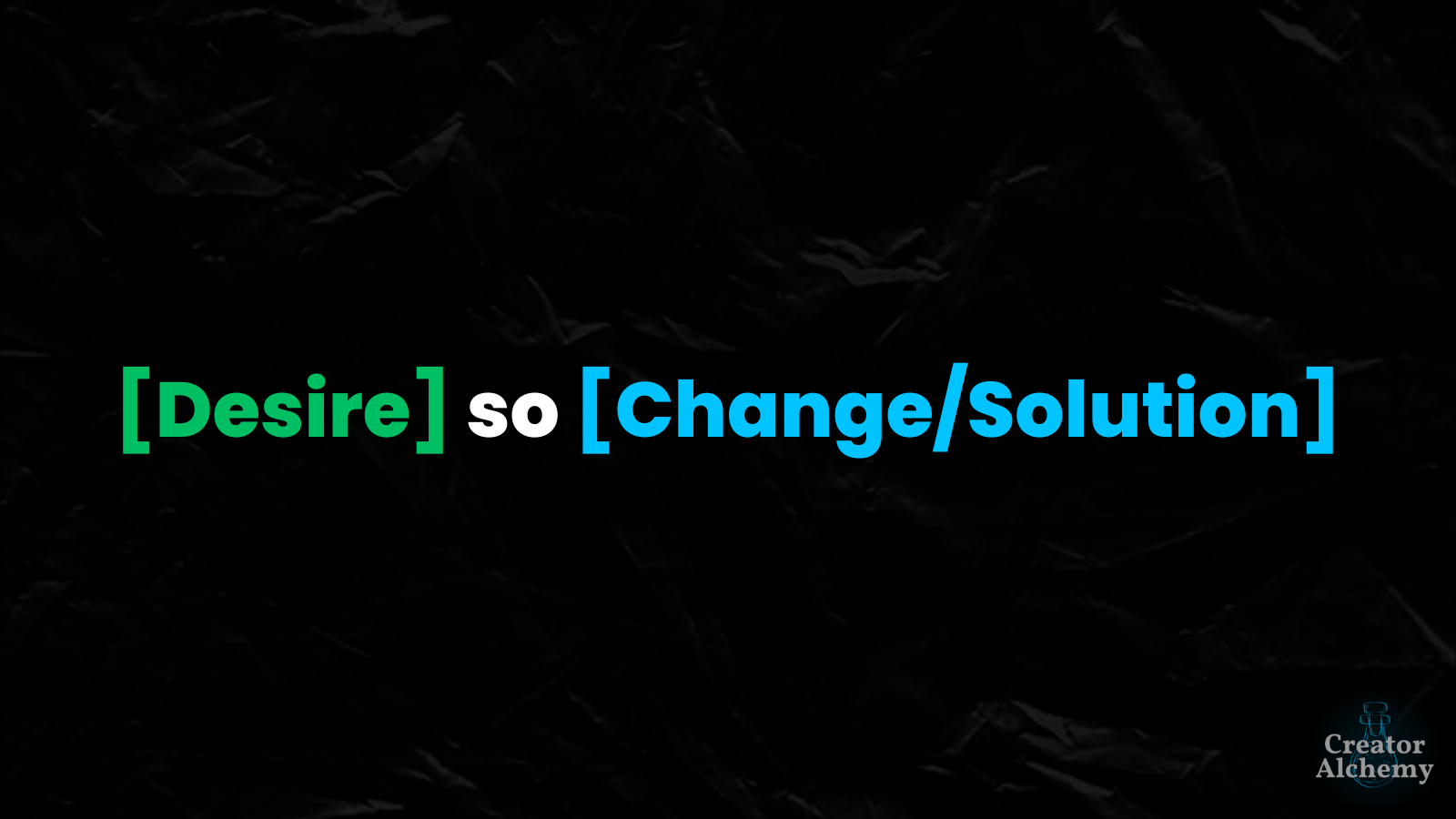
Let’s use the example from earlier where you want to write a newsletter.
Here’s how we can restructure it:
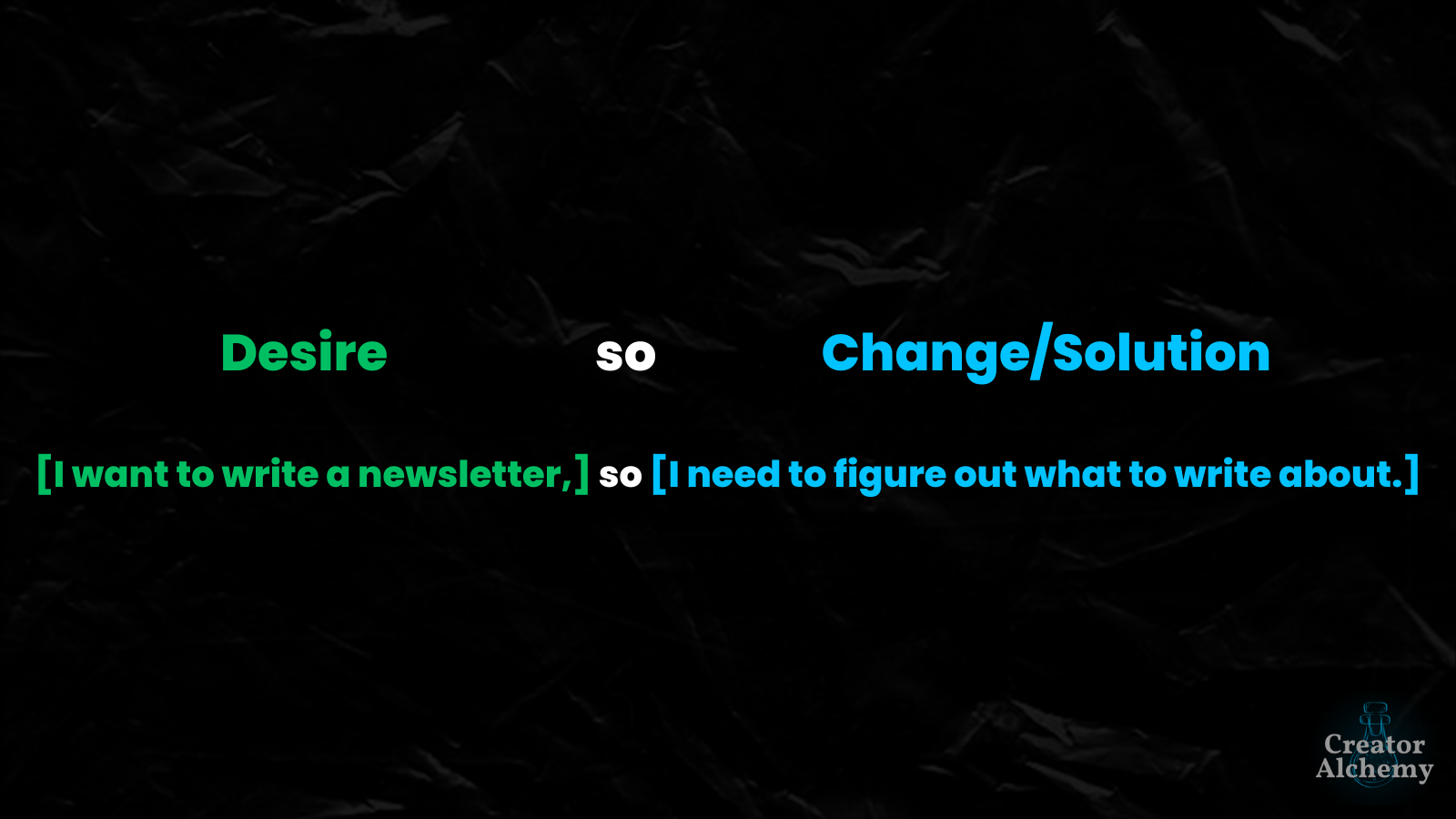
Because when you state a desire and say, “so,” you’re priming your mind to find a solution to finish the sentence.
“I want this thing, so…” naturally steers your mind toward finding a way to make it happen.
Now, because you’re not looking for a problem, you don’t find a problem.
You’re no longer standing at the base of the mountain looking up at how hard the climb looks—you’re standing at the bottom actively trying to figure out how to make it happen.
Your brain naturally finds problems, yes—but it’s incredibly powerful at finding solutions if you put in a little effort and give it some direction.
This shift can apply anytime you want to stop making excuses and start making changes:
- “I want to start a YouTube channel, but I don’t know where to start.” —> “I want to start a YouTube channel, so I need to figure out the easiest way to get started.”
- “I want to get in shape, but I don’t know anything about dieting.” —> “I want to get in shape, so I need to learn about nutrition and exercise.”
- “I want to read more, but I’m too busy.” —> “I want to read more, so I need to find a way to incorporate reading time into my busy schedule.”
- “I want to build a digital product, but I don’t know what people would buy.” —> “I want to build a digital product, so I need to figure out what my audience wants.”
- “I want to [do a thing], so I need to [figure out how to do the thing.]”
Whatever you want to do, there’s a plan you can come up with to make it happen—you just have to practice learning to find solutions instead of problems.
•••
Final Thoughts
“But” tells your mind to find a problem—a way to avoid your desire.
“So” tells your mind to find a solution—a way to achieve your desire.
It’s a simple but powerful way to shift your perception.
This is the number one psychological trait I’ve seen every single successful person have.
It’s not that they’re super smart, disciplined, wealthy, or whatever.
It’s just that they focus on figuring shit the fuck out.
Problems are everywhere.
But so are solutions.
You just have to learn how to see them.
If your default perception is skewed toward finding problems, try to switch from saying “but,” to “so,” and see how quickly you stop making excuses and start making changes…

